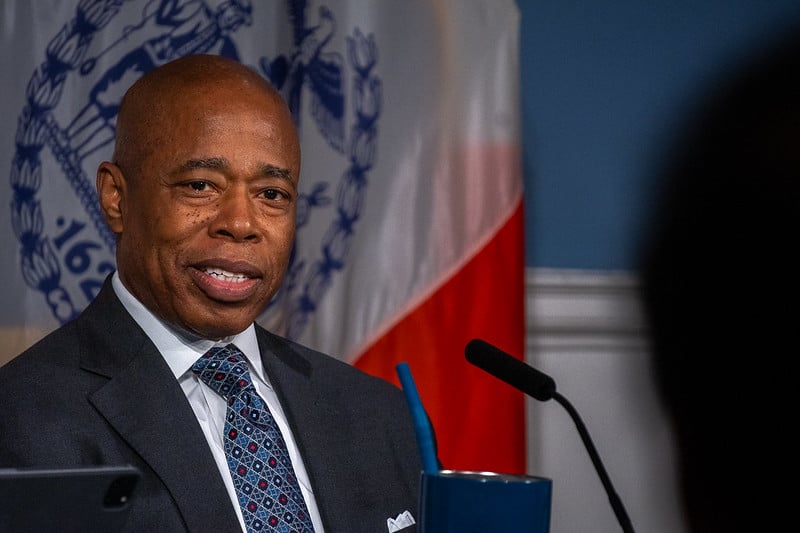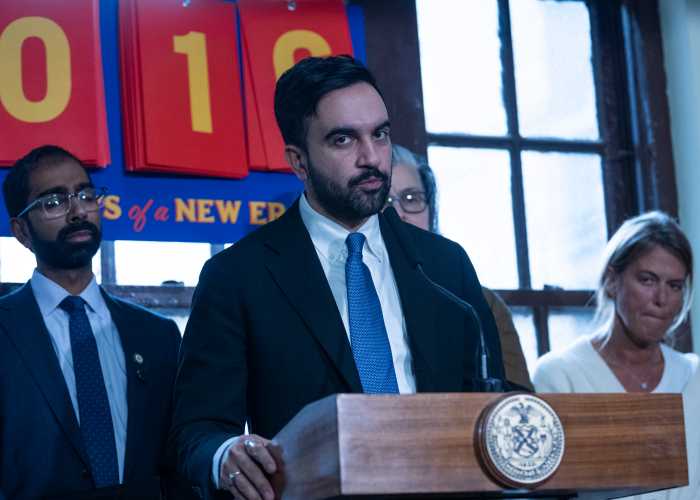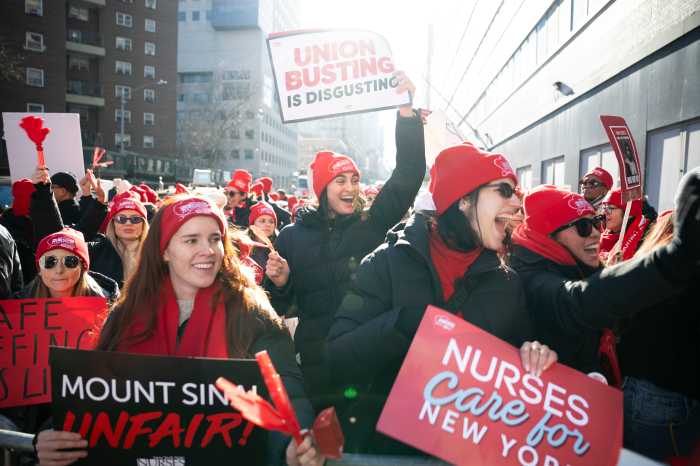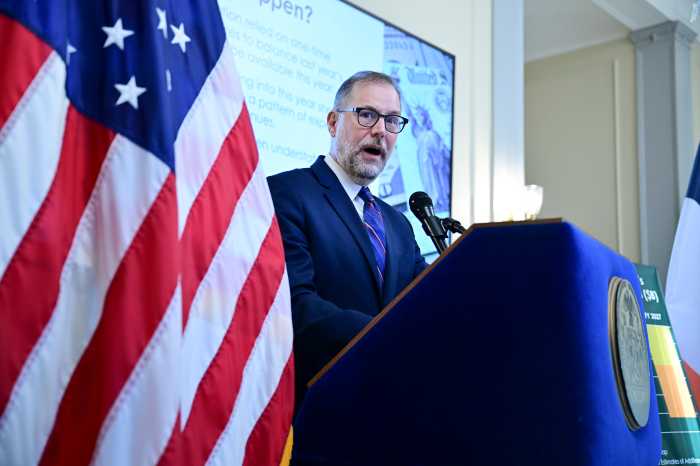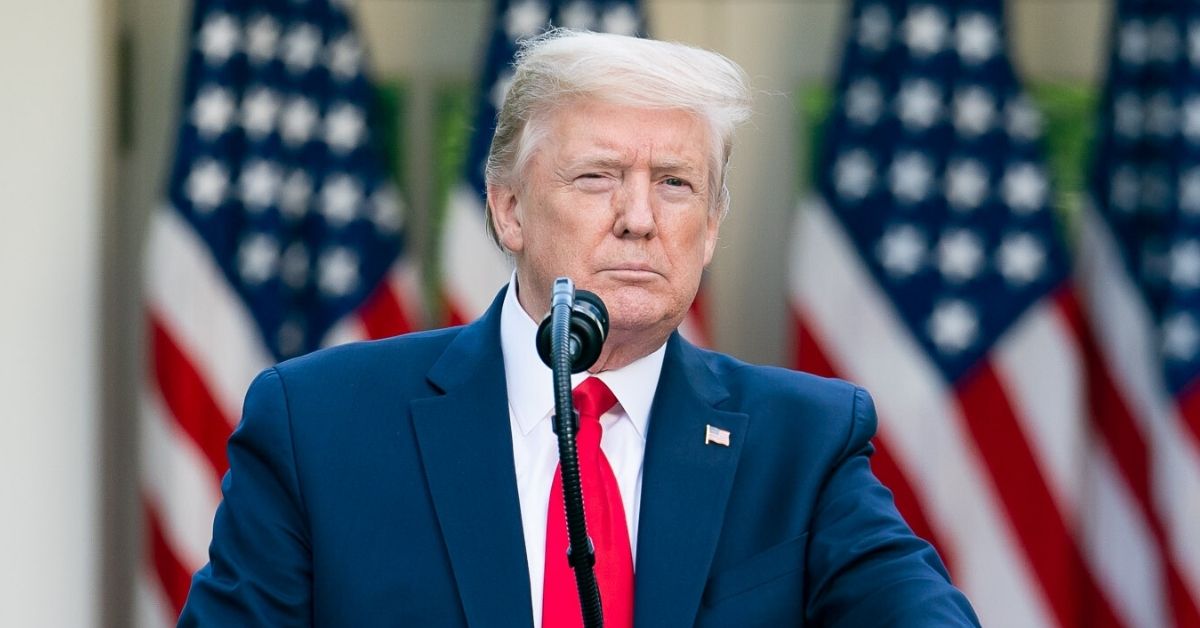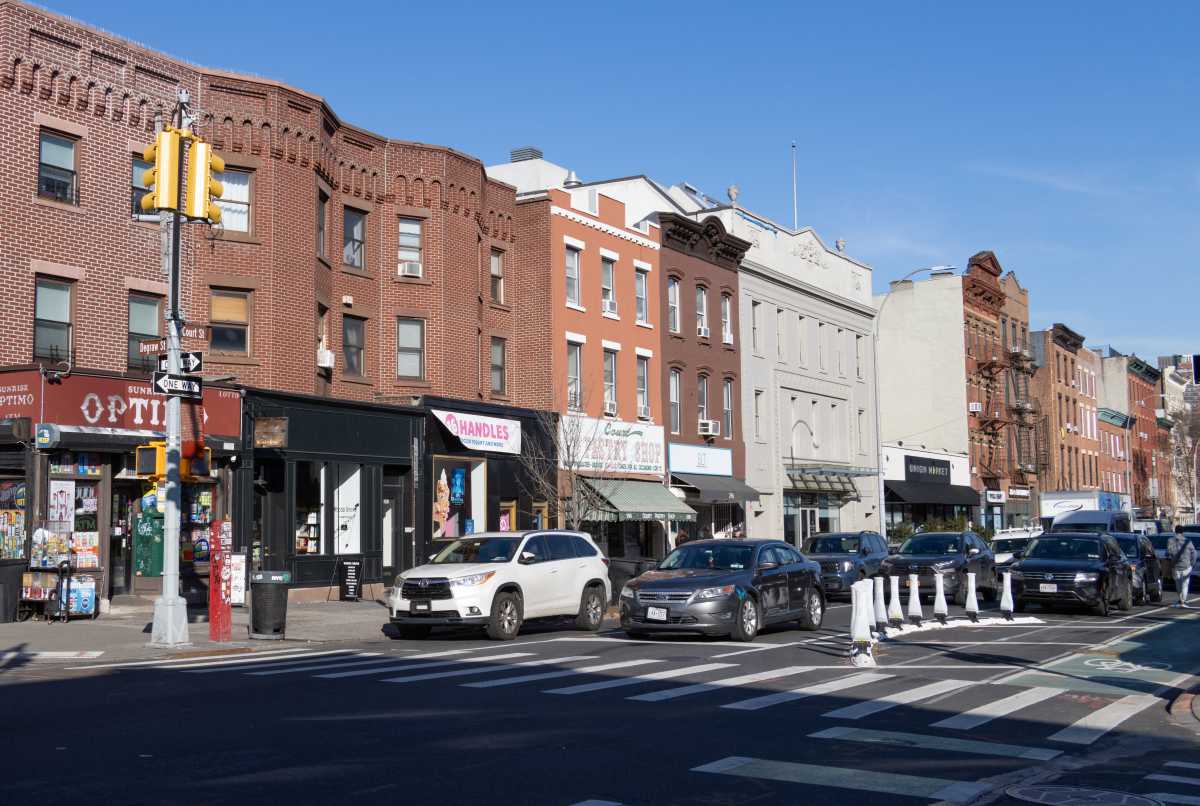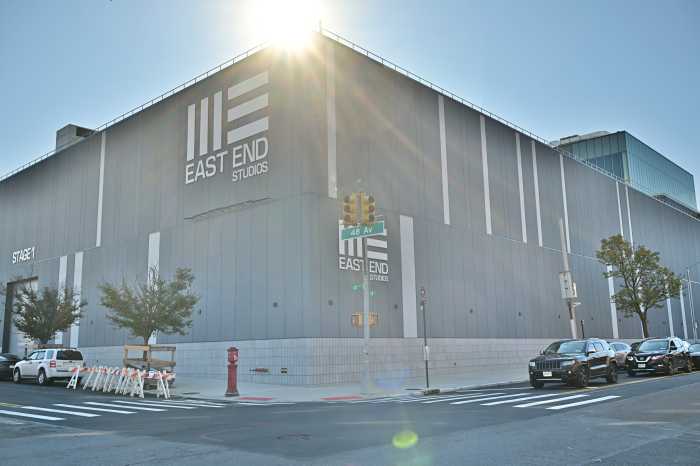A silent majority stands with him, Mayor Eric Adams claimed on Tuesday.
Hizzoner said at his weekly press briefing that most New Yorkers agree with his vision for the Big Apple, while further charging that a “numerical minority” of left-leaning lawmakers behind the passage of a bevy of legislation that he believes is unpopular had hijacked the City Hall agenda.
Mayor Adams made the comments in the wake of last week’s Council approval of bills that would ban most uses of solitary confinement in city jails and require the NYPD to publicly report on lower-level encounters with civilians. He is strongly against both pieces of legislation, arguing they will leave New Yorkers less safe by removing an essential tool to deal with violent individuals in city jails and by jamming up cops with mountains of additional paperwork.
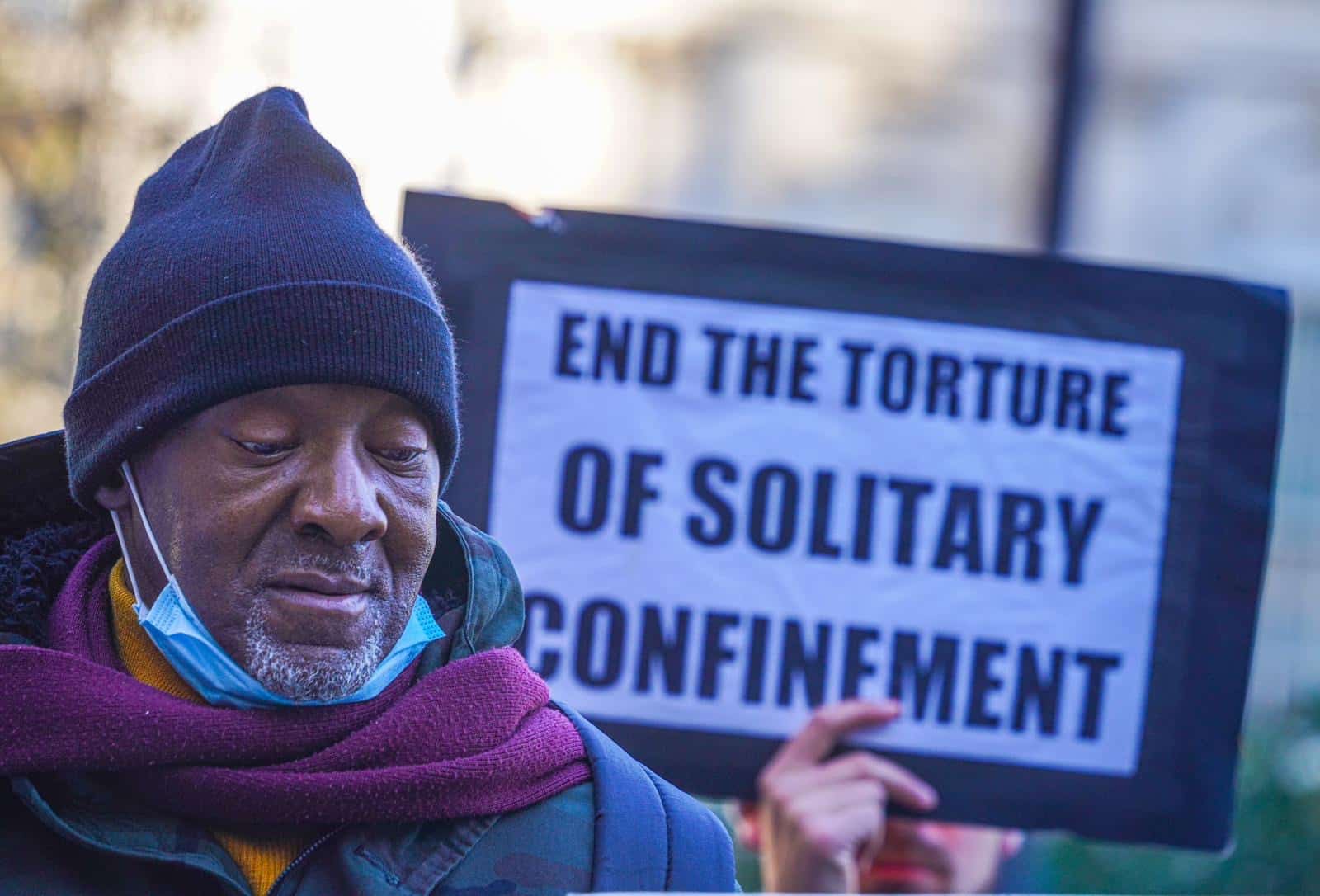
Adams was specifically responding to a reporter’s question on how he plans to tackle illegal street vending across the city — a practice he is vocally against.
The mayor referenced one bill, which Council Member Gale Brewer (D-Manhattan) recently introduced, to allow some street vending to continue on the Brooklyn Bridge, as the city prepares to kick out those who are currently vending there illegally. He said the issue shows that there are “two schools of thought” on how to run the city — those of centrists like himself, and those of further left pols.
“You see the school of thought that police officers should be filling out documentation every time they stop people,” the mayor said. “There are those who say that ‘no, police officers should do policing.’ People say that we should do what’s happening with punitive segregation (solitary confinement), there are those who feel one way, there are others who feel another. I think the majority of New Yorkers lined up to [think] we need a well-managed, peaceful, orderly city.”
While the mayor has not said whether or not he will veto either or both bills, the council passed each measure by veto-proof majorities, so it would have the votes to override a potential veto.
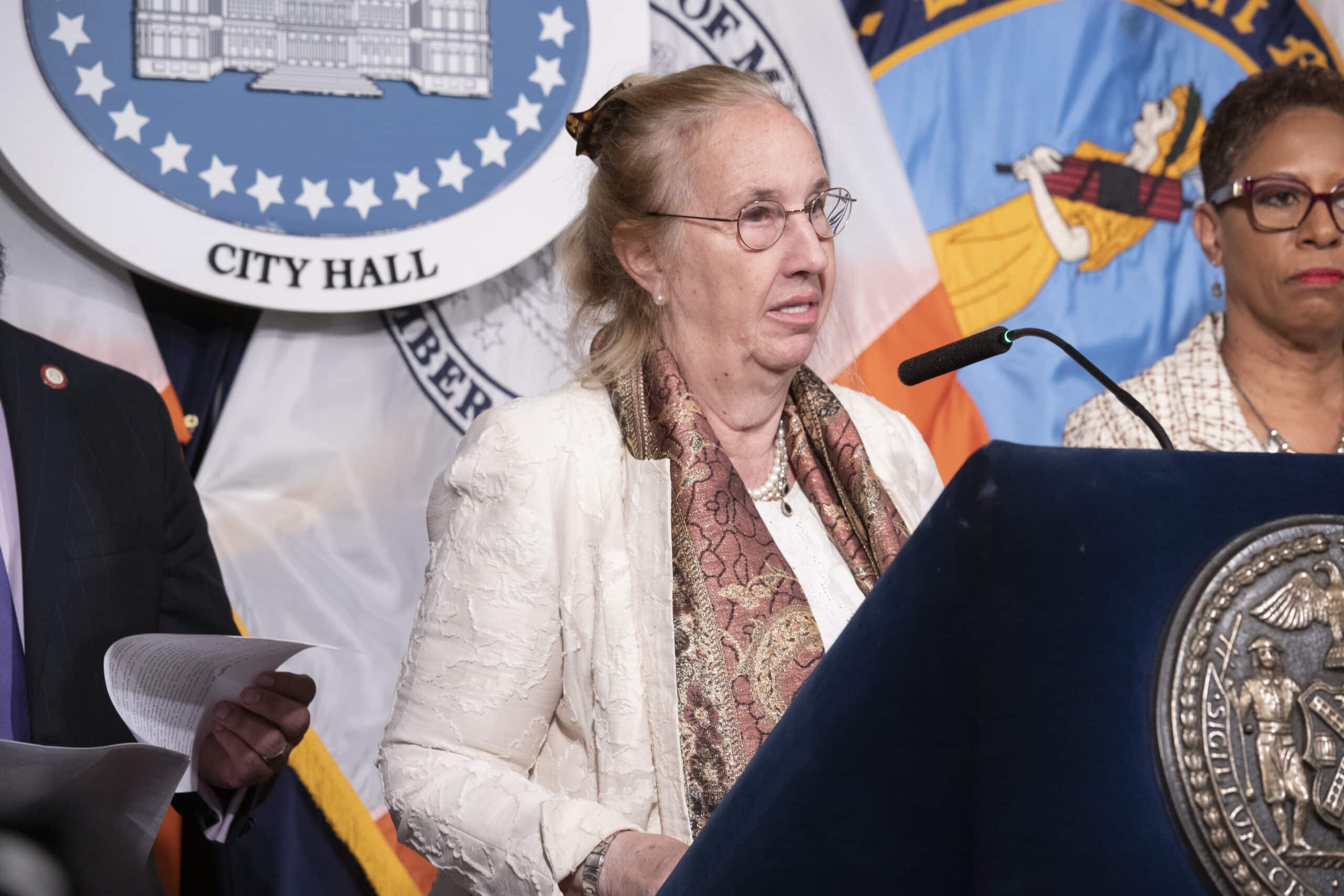
Blaming voter apathy
Adams argued that it is only because many voters have become “apathetic” that the numerical minority of left-leaning City Council members have been able to pass policies he believes to be deeply unpopular. He said he hopes the recently approved legislation, and recent proposals, will motivate more people to participate in future elections.
“It’s unfortunate that a large number of them have become apathetic to voting that we let the numerical minority hijack the philosophy and the management of our city,” Adams said. “And I’m hoping that this is going to encourage New Yorkers to engage in politics more.”
The mayor’s comments come as his second year in office nears its end and he is facing historically-low poll numbers as well as crises on many fronts. According to a Quinnipiac poll earlier this month, only 28% of New Yorkers approve of Adams’ management of the city, with most dissatisfied with his handling of the city budget and the ongoing migrant influx.
Adams has waved away the bad poll numbers as New Yorkers blaming him for the federal government’s failure to give the city more assistance with the migrant crisis.
“I don’t wake up every day looking at the polls,” he said. “I don’t wake up every day worried about re-election. I don’t want to wake up every day worrying about what people think of me. I wake every day that I gotta navigate the city out of this or it’s gonna be long term impact.”



